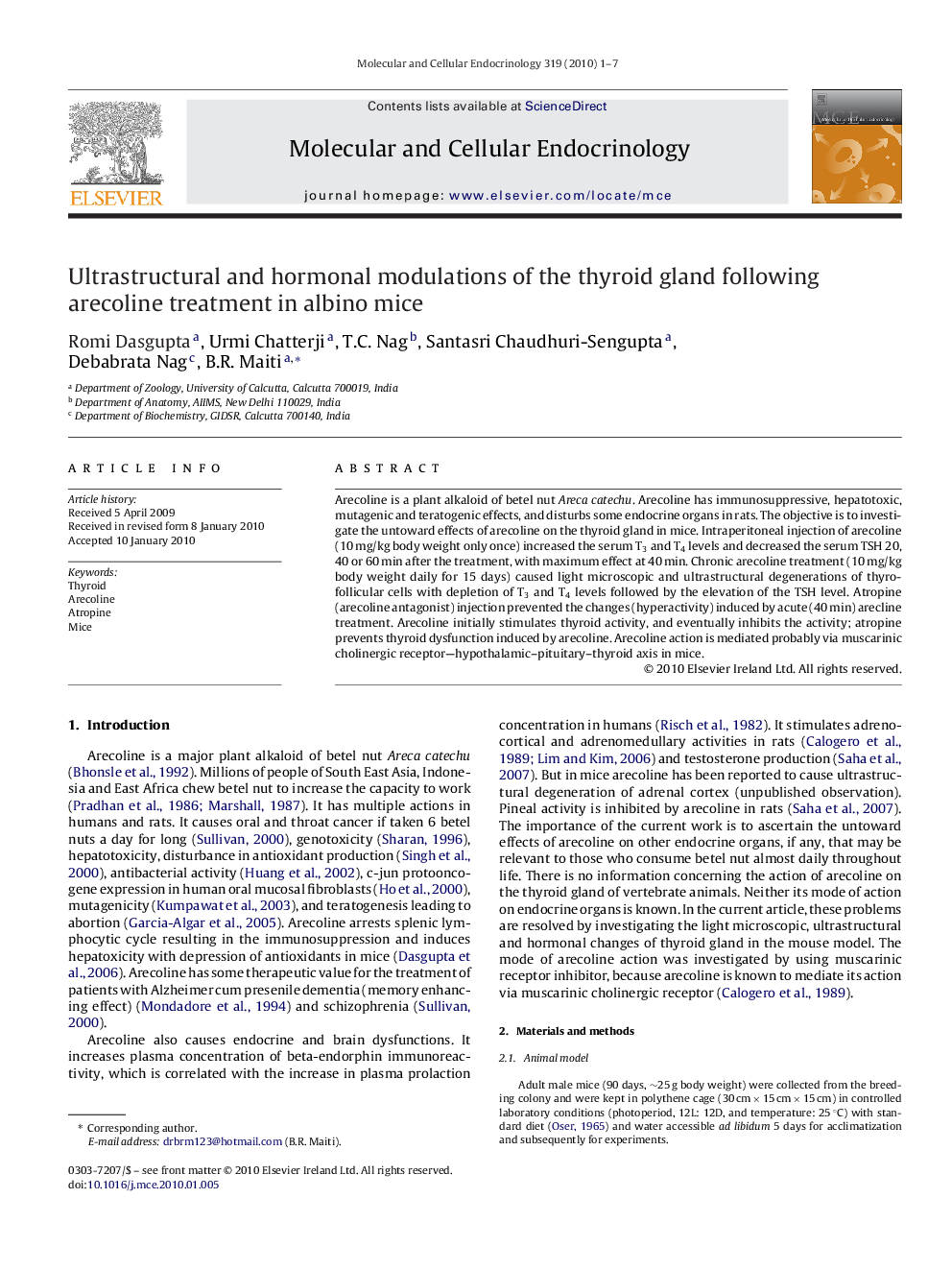| Article ID | Journal | Published Year | Pages | File Type |
|---|---|---|---|---|
| 2196972 | Molecular and Cellular Endocrinology | 2010 | 7 Pages |
Arecoline is a plant alkaloid of betel nut Areca catechu. Arecoline has immunosuppressive, hepatotoxic, mutagenic and teratogenic effects, and disturbs some endocrine organs in rats. The objective is to investigate the untoward effects of arecoline on the thyroid gland in mice. Intraperitoneal injection of arecoline (10 mg/kg body weight only once) increased the serum T3 and T4 levels and decreased the serum TSH 20, 40 or 60 min after the treatment, with maximum effect at 40 min. Chronic arecoline treatment (10 mg/kg body weight daily for 15 days) caused light microscopic and ultrastructural degenerations of thyro-follicular cells with depletion of T3 and T4 levels followed by the elevation of the TSH level. Atropine (arecoline antagonist) injection prevented the changes (hyperactivity) induced by acute (40 min) arecline treatment. Arecoline initially stimulates thyroid activity, and eventually inhibits the activity; atropine prevents thyroid dysfunction induced by arecoline. Arecoline action is mediated probably via muscarinic cholinergic receptor—hypothalamic–pituitary–thyroid axis in mice.
